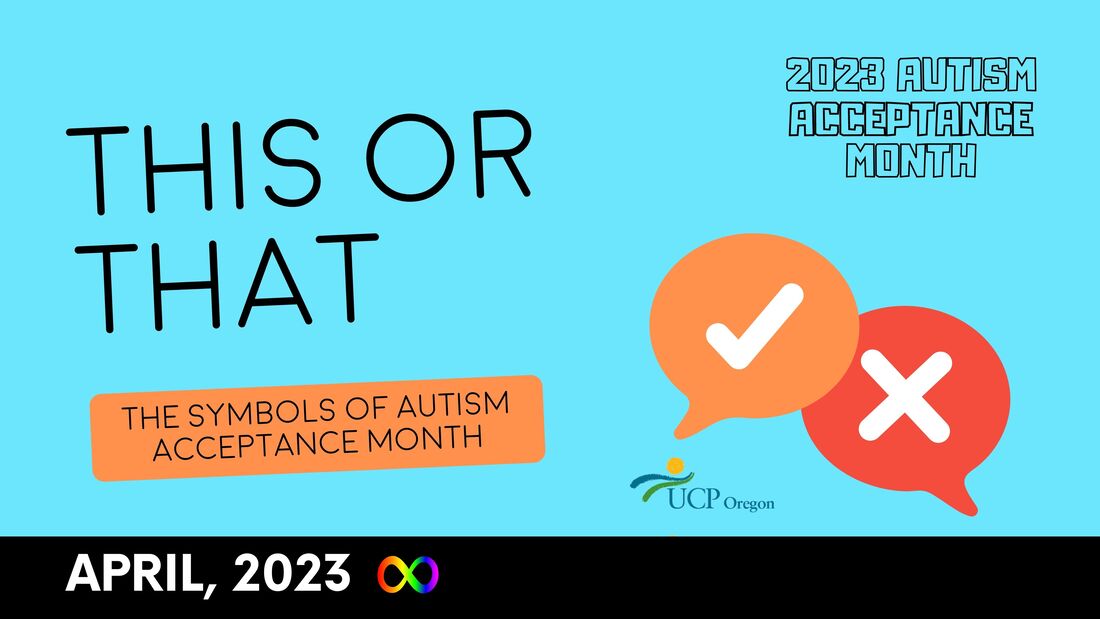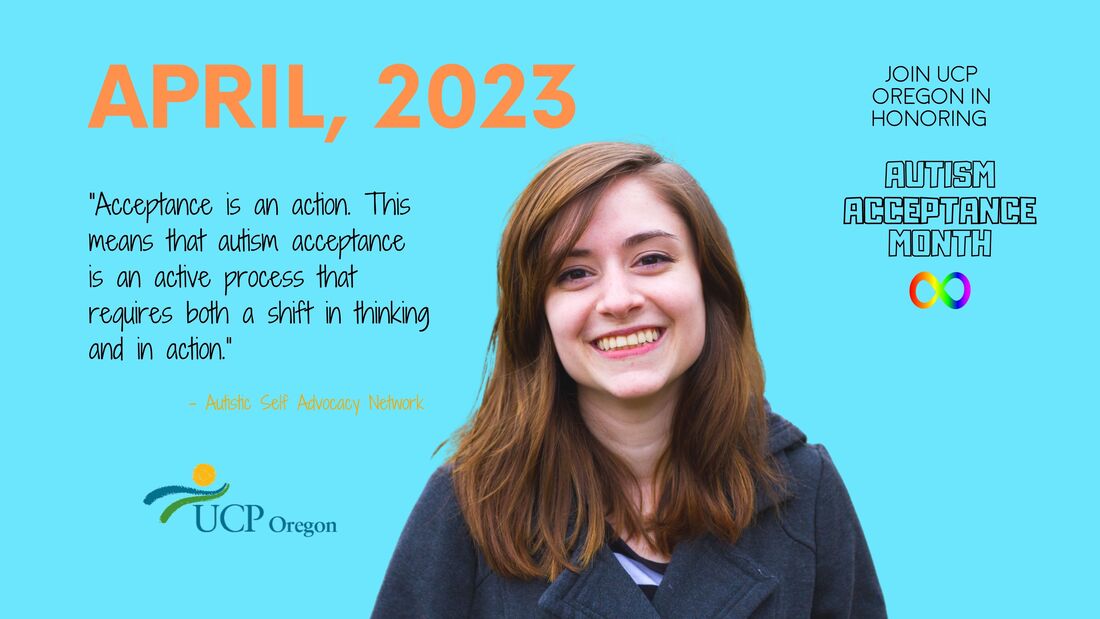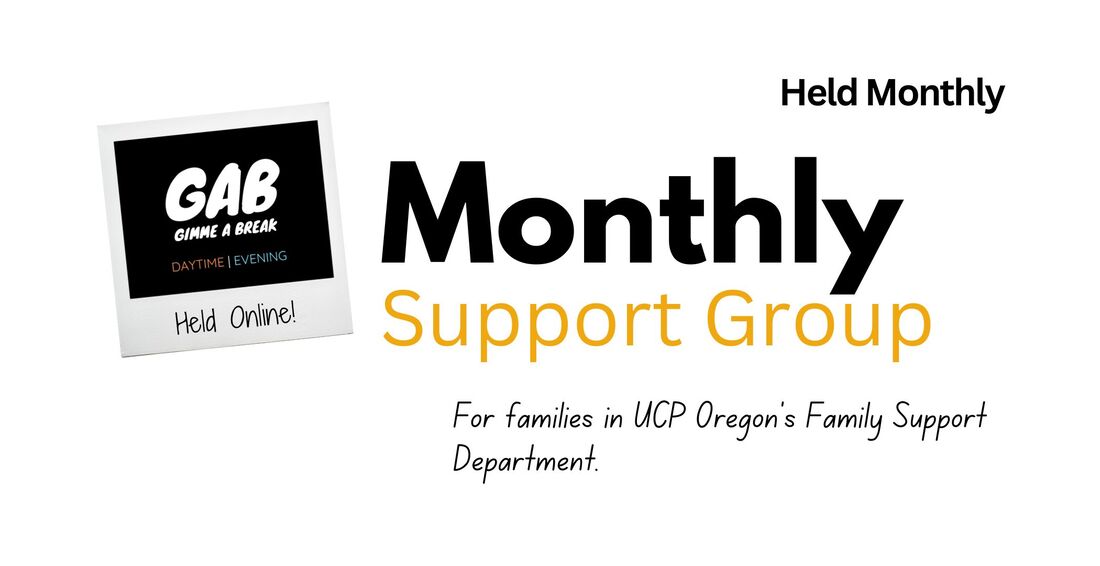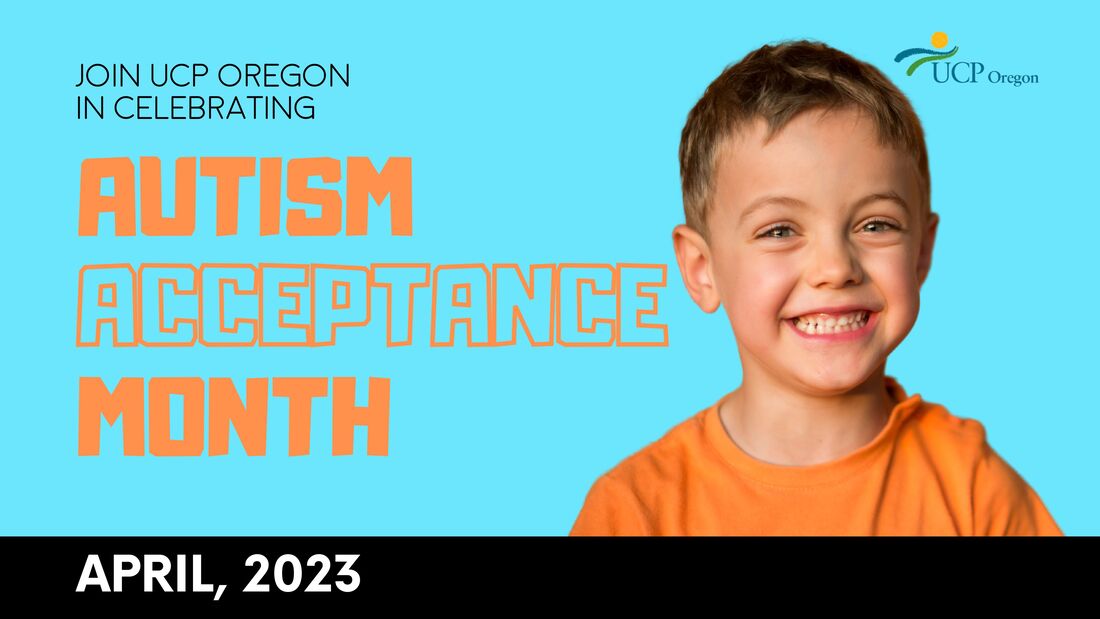|
April is Autism Acceptance Month. In honor of this month, UCP Oregon would like to share a piece written by Andrew Haynes. Andrew is the Brokerage Administrative Assistant for UCP Connections, and is a person with Asperger’s. Andrew would like to thank Silas Bird (Operations Coordinator for UCP Connections) for assistance in creating this piece. By Andrew Haynes, Brokerage Administrative Assistant, with assistance from Silas Bird, Operations Coordinator Autism Acceptance Month is a time to celebrate and embrace the unique qualities of individuals on the autism spectrum. It's no longer enough to simply raise awareness about autism; we must shift our focus towards acceptance and inclusion. We must advocate for policies that prioritize inclusion, education, employment opportunities, healthcare access, and social support for autistic individuals. Autism Speaks The article "Autism Speaks doesn’t speak for Autism" by Isabelle Ouyang provides a compelling argument against the popular organization Autism Speaks. The author argues that Autism Speaks perpetuates harmful stereotypes and stigmatizes individuals with autism rather than helping them. Ouyang points out that Autism Speaks' advertising campaigns often portray autism as a tragedy, which can lead to negative attitudes towards those with the condition. Additionally, the organization's focus on finding a cure for autism implies that people with autism need to be fixed or cured rather than accepted and supported. The author also critiques the lack of representation of autistic individuals in leadership positions within the organization, which can lead to a disconnect between those making decisions and those directly affected by them. Many individuals with autism have spoken out against Autism Speaks, stating that they do not accurately represent their experiences or perspectives. The Puzzle Piece Symbol The puzzle piece has been a symbol of autism awareness for decades, but it is time to retire this outdated symbol. The puzzle piece implies that individuals with autism are incomplete or missing something, which is not only inaccurate but also offensive. Autism is not a puzzle to be solved or fixed; it is a neurological difference that should be accepted and celebrated. Furthermore, the puzzle piece does not accurately represent the diversity within the autistic community. Autism is a spectrum disorder, meaning that individuals with autism have varying abilities and challenges. Using one symbol to represent such a diverse group of people oversimplifies their experiences and perpetuates stereotypes. Instead of using the puzzle piece, we should listen to and amplify the voices of autistic individuals themselves. They can tell us what symbols or language they prefer and what truly represents them as unique individuals. It's time to move away from outdated symbols like the puzzle piece and towards more inclusive representations of autism. It is crucial for organizations working with marginalized communities to prioritize listening to and uplifting their voices rather than speaking for them without their input or consent. As you may know, April is Autism Acceptance Month. Two employees of UCP Connections, Stephanie (Lead Personal Agent) and Glenna (Advocacy & Outreach Coordinator), compiled several great resources and quotes. Quotes “Acceptance is an action. This means that autism acceptance is an active process that requires both a shift in thinking and in action.” – Autistic Self Advocacy Network “Autism awareness isn’t really necessary anymore. Sometimes neurotypical advocacy efforts end up being viewed by the Autistic community as parents looking to wear a badge for knowing someone with autism. Most people already know Autism exists. Autism Acceptance…now that’s something to advocate for. That’s what #RedInstead represents.” –learnfromautistics.com Resources:
Reminder! Tomorrow is UCP Oregon's Family Support Group meeting.
The meeting will be held on April 13, at 6:30PM, via Zoom. AWESOME JOB ALERT!
UCP Oregon is hiring a “Lead Personal Agent” to work in one of our two intellectual/developmental disabilities support services brokerages--UCP Mentors. The Lead Personal Agent provides leadership, consultation, and oversight of key aspects of UCP’s brokerage services as it relates to the provision of person-centered, trauma-informed, self-directed case management services. The core responsibilities will include review of ISPs, caseload consultation, Personal Agent hiring, training, and supervision, quality assurance measures, and development of key policies and procedures. The Lead PA may also carry a small caseload. This position earns a $63,336 annual salary, with great benefits. It’s April, which means it’s “Autism Awareness Month.” It’s also “Autism Acceptance Month.” As Autism Parenting Magazine writes, “Autistic people aren’t a monolith—everyone has their own preference for what terminology he/she/they finds empowering. Still, many support the shift from ‘awareness’ to ‘acceptance.’” Self-advocate and blogger Lyric Holmans says, “Autism Awareness—knowing autistic people exist. Autistic Acceptance—accepting autistic people as they are, strengths and weaknesses. Autistic Pride—autistic people feeling safe & confident enough to have pride in their authentic neurodivergent selves.” Self-advocate Kassiane S says, “Awareness is easy. Acceptance requires actual work.” The Autistic Self Advocacy Network agrees, saying, “Acceptance is an action. This means that autism acceptance is an active process that requires both a shift in thinking and in action.” Many other groups have also moved from “acceptance” to “awareness.” They include the Autism Society of America, the Association of University Centers on Disabilities, the Autistic Women and Non-Binary Network, and the National Association of Councils on Developmental Disabilities. Whichever name you choose to use, we hope you’ll join us this month—and always!—by embracing neurodiversity. Learn more here:
|
NEWS Archives
July 2024
Categories
All
|




